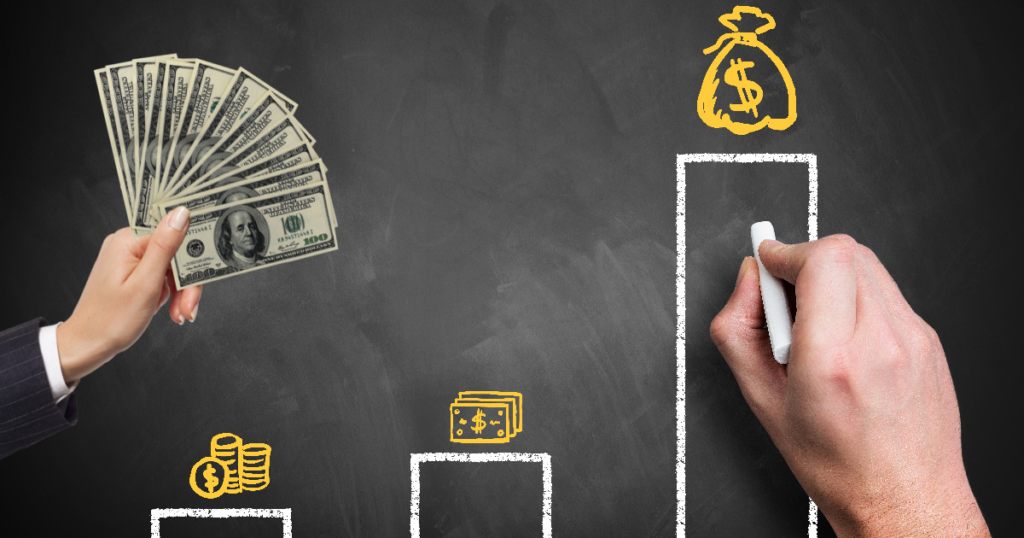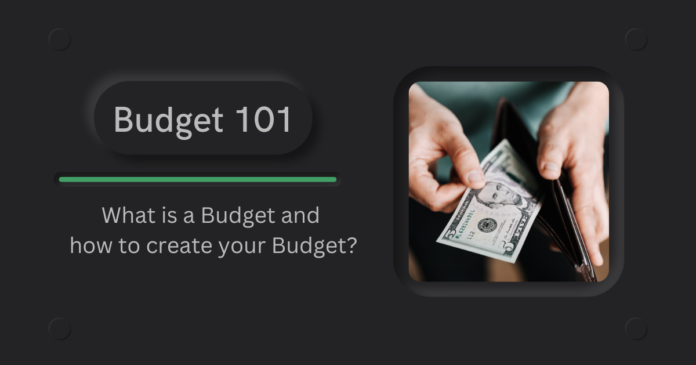Making a budget is a great way to keep track of your spending and organize your finances. Here is how you can complete this crucial task and increase your wealth.
What is a budget?
“A roadmap of your money to avoid impulsive purchases and help you save”
Let’s first distinguish your needs and wants. I need is something thought to be a necessity or essential items required for life such as groceries, gas, car payments, insurance, rent mortgage, water, and electricity on the other hand a want is something unnecessary but desired or items which increase the quality of living such as traveling, eating out and, subscribing to streaming services.
Know all of your income
List down all your debts from the highest interest rate to the smallest interest rate why? Because you’ll save money on interest. Paying off high-interest debt first is referred to as the adapt avalanche method of debt repayment it’s a popular debt production strategy because there are significant interest savings possible if you can quickly pay the remaining debt.
Compound interest makes it challenging for many borrowers to pay off debt because it is calculated by adding the interest from the previous month to the current balance. This means that if you only make minimum payments, you risk getting caught in a never-ending debt cycle. However, if you prioritize paying off the debt with the highest interest rate and pay off the principal plus interest each month, interest won’t have a chance to compound, which will save you a lot of money and stop the debt cycle.
Allocate a realistic budget for each of your needs
Decide how much you can afford to set aside each pay period for emergency funds. The important thing is to start the habit of saving, regardless of the amount.
How to stick to a budget?

1- Keep it real
If you want to succeed you have to push yourself but you also have to really push yourself to spend better and save more but be realistic. When you set up every single budget line. Saying you won’t purchase any new clothing for the entire year might not be a realistic goal if your winter coat is worn out.
2- Set-up auto debit
Set up automatic bank debiting so that some of your debts and savings are deducted from each paycheck. You didn’t even have the money in your possession for long enough to be tempted to use the $200 for your emergency fund to purchase a pair of sandals you merely wanted.
3- Plan your meals
Be driven through temptation that passes your restaurant budget and keeps that money grabbing manchester bay. Plan your meals in advance, including breakfast, lunch, dinner, and snacks then make a shopping list and follow it.
4- Think weekly
To spread out your spending, you might want to divide some of your budget lines into weekly amounts. For instance, if you allow yourself $200 for personal expenses, consider it $50 per week. If you put $894 in your grocery budget that’s like spending about $223 a week. Sometimes thinking in this bite-size amount makes it easier to stick to your budget.
5- Check your social calendar
The same day each year is your best friend’s birthday; plan for it. Next month, you’re hosting a book club, and you need to put together a charcuterie board. Budget for it. Families coming in from out of town you get that idea.
Yes, emergencies and unexpected events can ruin your budget. However, a lot of what we consider surprises are simply the result of poor planning. So that you can realistically plan for each month’s needs, review your social calendar as you create each month’s budget.
And don’t worry you don’t have to build each budget from scratch go ahead and copy everything forever from the previous month then make tweaks to just the budget lines that will be impacted by whatever occurs in the future.
6- Learn to say no or not now
While a budget won’t always say “no way,” it will frequently say “not today.” Cash is preferred for larger purchases. And to be completely honest, there are times when you must refuse. You can’t just rush through life, thinking you’ll get everything you want; that’s part of being an adult. It’s similar to declining social invitations in order to avoid using up all of your energy. The same holds true for refraining from spending occasionally in order to prevent emptying your bank account or jeopardizing your future.
Don’t worry about what everyone on social media appears to have some of them are lying some are in depth up to their designers and glasses If you really do have your life together, but those people had to work hard for it, so you will too, work hard to defend your budget, saying no or not now when you need to because being true to yourself about your budget and your financial goals is more valuable than anything you could ever acquire.
7- Ditch your credit card
You can’t stick to your budget using a credit card. In fact, thinking that the problem will be solved tomorrow often serves as motivation to spend lavishly. Hey, tomorrow’s problem is a weak justification, and you’re better than that. If you want to stick to your budget don’t use someone else money that’s weighing you down with interest fees.
Use your real money your cash or debit card that’s how you stay away from the excuse of tomorrow’s problem and start knocking out tomorrow’s goals.
8- Find a budget Baddy
Get a budget buddy, also known as an accountability partner, and do yourself a huge budgeting favor. That’s the kind of person encouraging enough to support you and frank enough to criticize you. Get a spouse? Boom. You have a built-in budgetary friend.
Sounds difficult? Budgeting is the hardest part of being an adult but always look on the greener side. Your future children will thank you for it. Your parents will celebrate for sure and your future self will be the happiest. Believe in yourself you will be financially free soon. If one day you feel like losing hope and motivation remember these 10 amazing perks of having a budget.

1- Provides you 100% control over your money
By using a budget, you can live a much less stressful life without having to worry about unforeseen costs. It also allows you to understand where your spending habits are recast.
2- It Lets you track your financial goals
Sit down and write out your financial goals once you have them written down on paper and you take control of your money, it’s much less likely not to meet them.
3- Budgeting will open your eyes
A budget enables you to make the most of investment and purchasing opportunities, understand what you can afford, and devise a strategy to reduce your debt. Additionally, it reveals your priorities to you based on how you spend your money. By doing this, you’ll be able to modify your spending patterns in order to achieve your goals.
4- Will help you organize your spending
When starting to budget start by breaking down all your expenses for demands such as cable, the internet, smart gauge, insurance, groceries, entertainment,t restaurant, and gym memberships printing a budget template will help you stay organized. This allows you to quickly see how much you spend each month on your individual services.
Another reason to break this down into categories allows you to see if a bill goes up with a company. Recently our garbage bill was raised by $10 a month budgeting allowed us to see this quickly change so I was able to call and get our bill back to the original price.
5- Will help create a caution for unexpected expenses
Unexpected expenses occasionally arise for things like medical visits, car repairs, and plumbing issues. It is important that you have money to set aside for these types of events aka an emergency fund. Not having enough cash to pay for the expense and being forced to use a credit card that has an outstanding balance is the last thing you would want to happen.
6- Allows you to pay down that quickly
Going to school taking out a mortgage and buying a new car are some ways we will go into debt. Understanding your debt is extremely important. Making sure you understand your interest rate turns and the length of loans will be critical in controlling your debt. Budgeting will give you a clear understanding of how to pay your debt. You’ll discover that it’s simple to start making cuts in other areas so you can afford to make additional debt payments.
7- Helps you determine whether you can take on debt and how much
Taking on debt may not always be a bad idea if it is necessary or within your means. Budgeting shows you how much of a debt load you can realistically take without being stressed or if taking the depth load is worth it.
8- Enables you to produce extra money
You can find and cut out wasteful spending, such as late fees, penalties, and interest when you create a budget. This seemingly small saving can add up over time.
9- Budgeting helps you invest
Investments are a great way to put your money to work for you, and you should consider them so that you can retire when you want. Some people use this rule of whatever is left at the end of the month I’ll put in my retirement. This is backward thinking. Try changing your mindset to paying yourself first. Meaning paying yourself first and knowing how much you need to save for retirement.
It obviously takes some time to learn how to balance it properly so that all of your bills are still paid, but this is by far the best way to achieve your savings or investment goals.
10- Enables you to communicate with your significant others about money
A budget can explain how your family or any other group members use the money if you share your finances. This promotes teamwork in working for common financial goals and prevents conflicts on how money is used. Creating a budget and tandem with your spouse will avoid conflicts and resolve personal differences in how your money is spent.
Related: How To Manage Your MONEY Like Wealthy | Money Management Tips
Budgeting teaches family members spending responsibility and accountability. We hope we were able to enlighten you today believe in yourself because your voice is important because your dreams matter because there is only one you because you are worth it.
A roadmap of your money to avoid impulsive purchases and help you save.
- Keep it real
- Set-up auto debit
- Plan your meals
- Think weekly
- Check your social calendar
- Learn to say no or not now
- Ditch your credit card
- Find a budget Baddy
- Provides you 100% control over your money
- It lets you track your financial goals
- Budgeting will open your eyes
- Will help you organize your spending
- This will help create a caution for unexpected expenses
- Allows you to pay down that quickly
- Helps you determine whether you can take on debt and how much
- Enables you to produce extra money
- Budgeting helps you invest
- Enables you to communicate with your significant others about money

